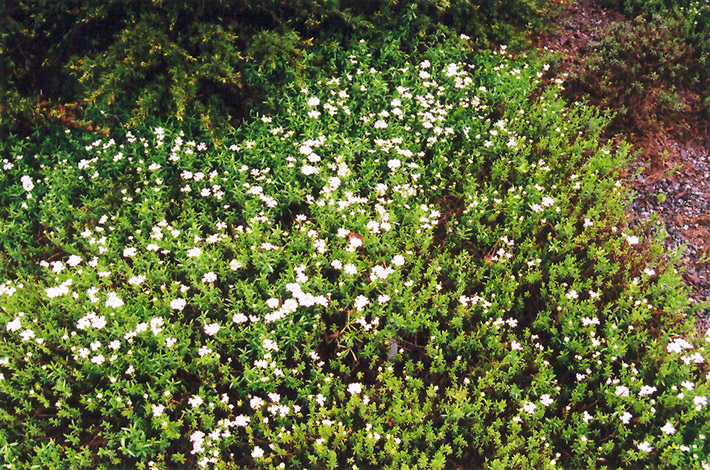Plant Finder
Height: 8 inches
Spacing: 14 inches
Sunlight:
![]()
![]()
Hardiness Zone: 3
Description:
A lovely mounded variety featuring narrow, evergreen foliage smothered in clusters of white flowers; relatively low maintenance and easy to grow, great for adding texture and contrast to garden beds, borders or large containers
Ornamental Features
Nana Candytuft is smothered in stunning white flowers at the ends of the stems from mid to late spring. Its narrow leaves remain green in color throughout the year.
Landscape Attributes
Nana Candytuft is an herbaceous evergreen perennial with a mounded form. It brings an extremely fine and delicate texture to the garden composition and should be used to full effect.
This is a relatively low maintenance plant, and should only be pruned after flowering to avoid removing any of the current season's flowers. It is a good choice for attracting bees and butterflies to your yard. It has no significant negative characteristics.
Nana Candytuft is recommended for the following landscape applications;
- Mass Planting
- Rock/Alpine Gardens
- Border Edging
- General Garden Use
- Groundcover
Planting & Growing
Nana Candytuft will grow to be about 8 inches tall at maturity, with a spread of 18 inches. When grown in masses or used as a bedding plant, individual plants should be spaced approximately 14 inches apart. Its foliage tends to remain low and dense right to the ground. It grows at a medium rate, and under ideal conditions can be expected to live for approximately 10 years. As an evegreen perennial, this plant will typically keep its form and foliage year-round.
This plant does best in full sun to partial shade. It is very adaptable to both dry and moist growing conditions, but will not tolerate any standing water. It may require supplemental watering during periods of drought or extended heat. It is not particular as to soil type or pH. It is highly tolerant of urban pollution and will even thrive in inner city environments. This is a selected variety of a species not originally from North America.

